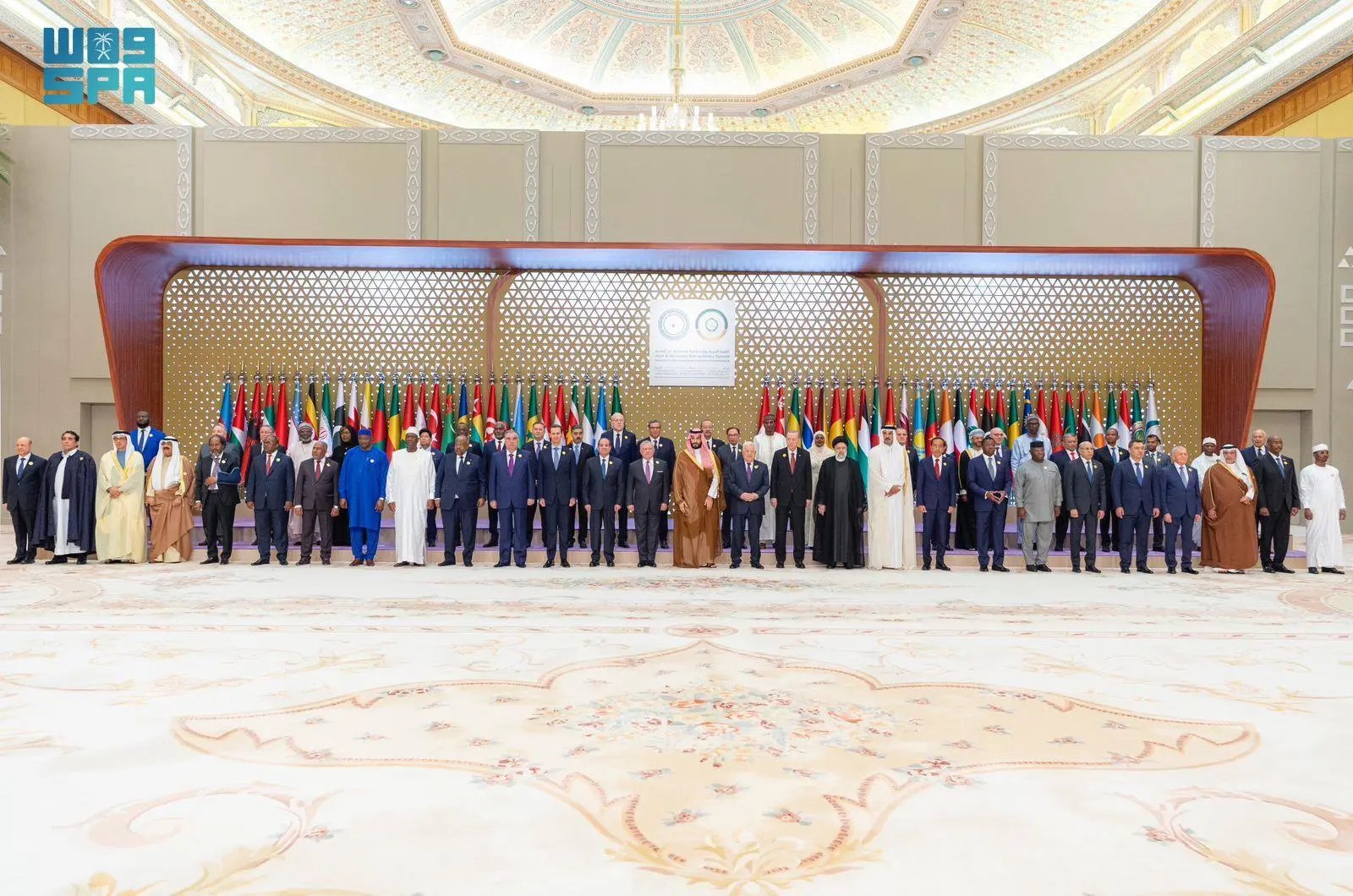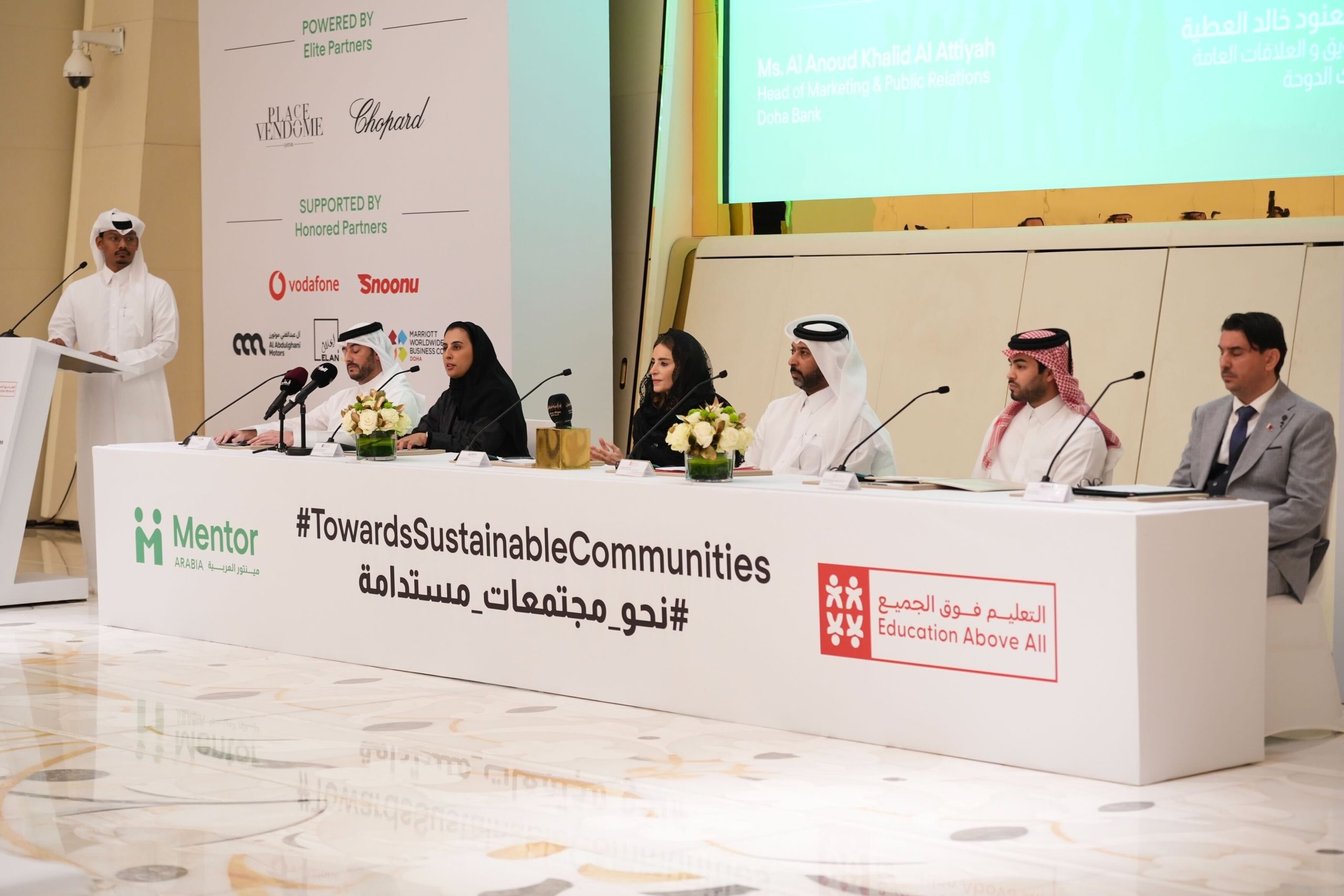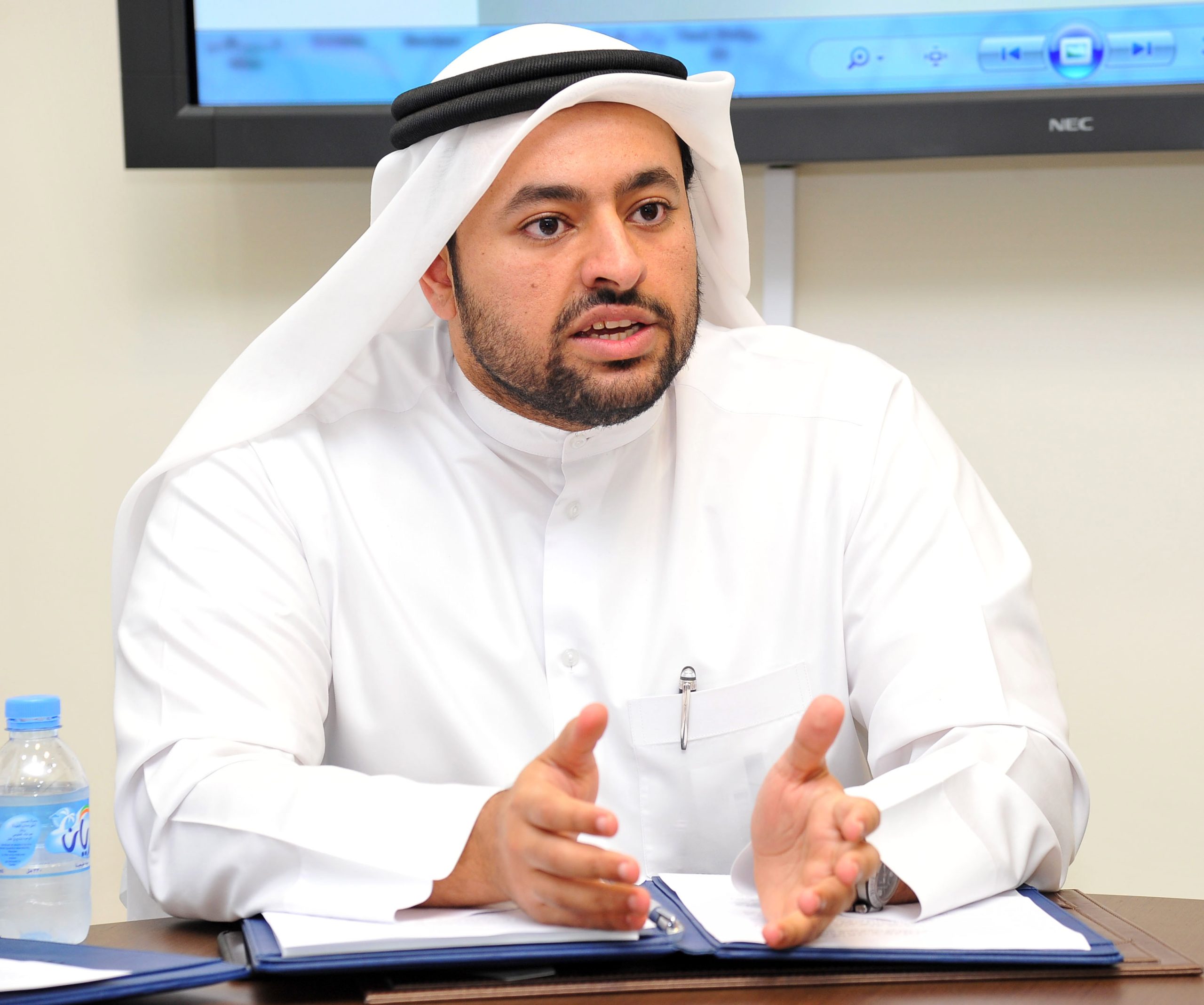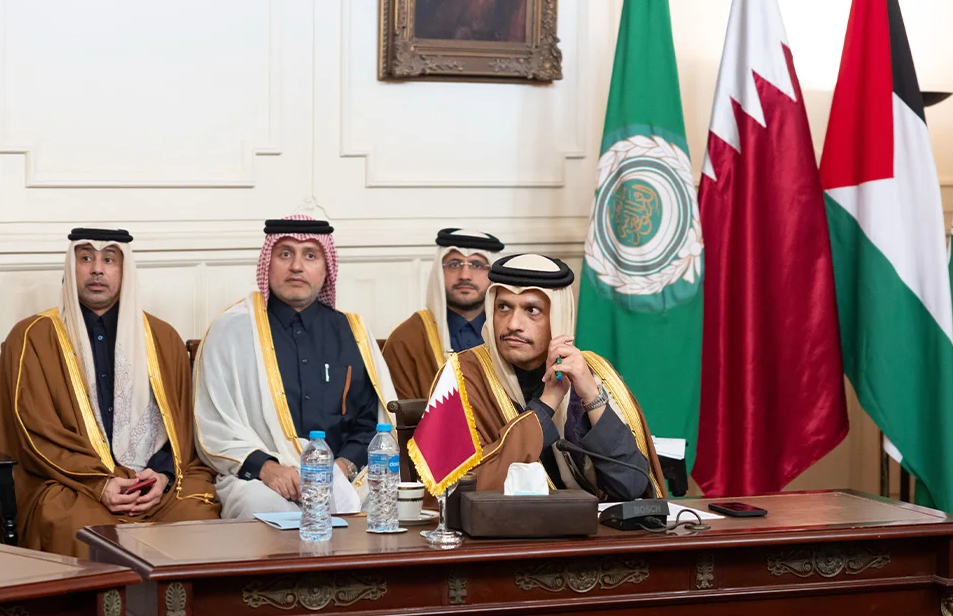Earlier reports pointed to a division among the Arab League’s members over the adoption of “important clauses” in a resolution regarding Israel’s aggression in Gaza.
The Arab-Islamic summit called on “all countries to stop exporting weapons and ammunition” to Israel on Saturday as reports shed light on an alleged divide between Arab League members over the final statement.
Held in Riyadh, the emergency meeting on Gaza saw the attendance of world leaders from members of the Arab League and the Organization of Islamic Cooperation (OIC), including Qatar’s Amir Sheikh Tamim bin Hamad Al Thani.
The summit aimed to explore concrete measures to halt the ongoing Israeli aggression in Gaza that has continued to escalate and intensify more than one month on. As of Sunday morning, Israeli occupation forces (IOF) have killed at least 11,078 Palestinians, including more than 4,500 children.
The summit’s joint statement started off by reiterating the Palestinians’ “right to self-determination” and the need for a two-state solution in line with the Arab Peace Initiative.
It also said all participating nations are holding Israel “responsible for the continuation and aggravation of the conflict, which is the result of its violation of the rights of the Palestinian people, and of the Islamic and Christian sanctities.”
“We affirm that Israel, and all countries of the region, will not enjoy security and peace unless the Palestinians enjoy theirs and regain all their stolen rights. We stress that the continuation of the Israeli occupation is a threat to the security and stability of the region and to international security and peace,” the statement read.
Unlike previous summits, the Riyadh gathering’s final statement spotlighted new demands, pressing countries around the world to halt their military support for the IOF.
“[We] call on all countries to stop exporting weapons and ammunition to the occupation authorities that are used by their army and terrorist settlers to kill the Palestinian people and destroy their homes, hospitals, schools, mosques, churches and all their capabilities,” the statement read, as quoted by the Saudi press agency (SPA).
The statement also rejected “describing this retaliatory war as self-defence or justifying it under any pretext.”
While the statement fell short of naming countries, it comes as Israel’s key Western allies, chief of which the United States, continue to provide the IOF with military support through funding or the supply of weaponry.
In the first week of the war, the US House passed a Republican bill to provide Israel with $14 billion in aid to bolster Israel’s military capabilities under its “right to self-defence”.
It includes $4 billion to boost Israel’s Iron Dome, David’s Sling missile defence systems as well as military equipment transferred from US stocks, Al Jazeera reported at the time.
The occupying state is already getting $3.8 billion per year in military assistance and has received aid from the US worth more than $124 billion since its establishment following the Second World War.
Over the weekend, reporters in Gaza pointed to the use of the Hellfire R9X bladed missile by the IOF in bombing the Al-Shifa Hospital’s courtyard. The weapon is mostly made by Lockheed Martin, a prominent American arms company, and carries blades that are strong enough to cut limbs and organs of victims.
Around the world, protesters have targeted arms exports shipments delivering aid to Israel. Last week, hundreds of pro-Palestinian protesters rallied at Washington’s Port of Tacoma to block a military supply vessel.
Similarly in the UK, pro-Palestine protesters targeted the country’s biggest military supplier by blocking the entrances to a BAE Systems factory in England. Palestinian and Australian human rights organisations in Australia are also shedding the spotlight on the country’s arms relations with Israel with an official legal challenge in court.
Australians have also joined an international “block the boat” movement to protest against weaponry being sent to Israel.
“We warn of the disastrous repercussions of the retaliatory aggression by Israel against the Gaza Strip, which amounts to a war crime, and the barbaric crimes committed also in the West Bank and Al-Quds Al-Sharif,” the Arab-Islamic summit said.
The statement added: “We affirm addressing together this aggression and the humanitarian catastrophe that it causes. We seek to stop and end all Israeli illegal practices that perpetuate the occupation and deprive the Palestinian people of their rights, especially their right to freedom and to have an independent sovereign State on all their national territory.”
Member nations in attendance also called for the lifting of the siege on Gaza and allowing aid convoys to enter the Strip, echoing demands made by rights organisations worldwide.
Gaza has been under a complete Israeli siege since October 8 that has cut off its 2.3 million population from water, electricity and essential food supplies.
As a result, Gaza’s health sector has collapsed and doctors have struggled to treat tens of thousands of wounded due to an absence of medical resources and electricity. Two out of 39 premature babies who were kept alive in incubators died on Saturday due to the absence of oxygen and electricity.
“These acts of collective punishment amount to war crimes under international law. We emphasise the need to impose this resolution on Israel, the occupying power, to ensure compliance with international laws and to immediately cease these barbaric and inhumane measures,” the statement said.
Arab and Muslim nations called on the Prosecutor of the International Criminal Court to conduct an “investigation into war crimes and crimes against humanity being committed by Israel against the Palestinian people in all the occupied Palestinian territories.”
Divisions over statement
The statement came out after earlier reports pointed to alleged division among the Arab League’s members over the adoption of “important clauses” in a resolution regarding Israel’s aggression in Gaza.
Sources had told Al Araby Al Jadeed on Saturday that four “influential countries” in the 22-member bloc had blocked the adoption of a proposal that carried concrete measures against Israel.
The clauses are believed to include prohibiting the use of all military bases in the region that are used to supply Israel with weapons and freezing all Arab relations with the occupying state.
The statement included “threats to leverage oil and Arab economic capabilities to apply pressure and halt the ongoing aggression”, the Qatar-based outlet reported.
It said countries that backed the resolution included: Qatar, Palestine, Syria, Algeria, Tunisia, Iraq, Lebanon, Kuwait, Oman, Libya and Yemen.
However, it is unclear whether Bahrain, United Arab Emirates, Sudan, Morocco, Jordan, and Egypt voted against or abstained from voting in the resolution. Notably, all the aforementioned countries share diplomatic ties with Israel.
Due to the differences, Saudi Arabia merged the Arab and Islamic meeting after the Arab League and the OIC were initially scheduled to meet separately.
A similar regional divide was seen last month during the Cairo Peace Summit on Gaza, attended by Arab and Western world leaders and diplomats.
The summit ended without the announcement of a ceasefire, and Sisi’s Spokesman Ahmed Fahmi confirmed a divide over the final communique’s text. The official said there was a split between those who wanted to condemn one side and those calling for a neutral statement.
“The points of contention in the Cairo Peace Summit related to the level of condemnation. There are those who want to condemn one party, as if the narrative [the war] began with a specific party on a specific day, in reference to the Al-Aqsa Flood Operation that was carried out by the Al-Qassam Brigades of the Hamas movement,” Fahmi told Egyptian media on October 21.
Fahmi was referring to the 7 October operation that was carried out by the Al-Qassam Brigades—Hamas’ armed wing. The historic operation saw the Palestinian resistance group break out from the besieged Gaza Strip and into occupied areas through air, land and sea attacks.
The resistance group captured at least 242 Israelis and foreigners as part of the operation. Since then, Israel has used the incident as the pretext for its brutal war on Gaza.
Commenting on the summit, Fahmi noted that it “aimed to mobilise consensus from the international community regarding what is happening in the Gaza Strip” and did not necessarily intend on ending “with outcomes or a consensual declaration among all participants.”
However, Fahmi added that there is no disagreement among the participants at the summit regarding the entry of aid into the Gaza Strip, respect for civilian rights, and the two-state solution.







